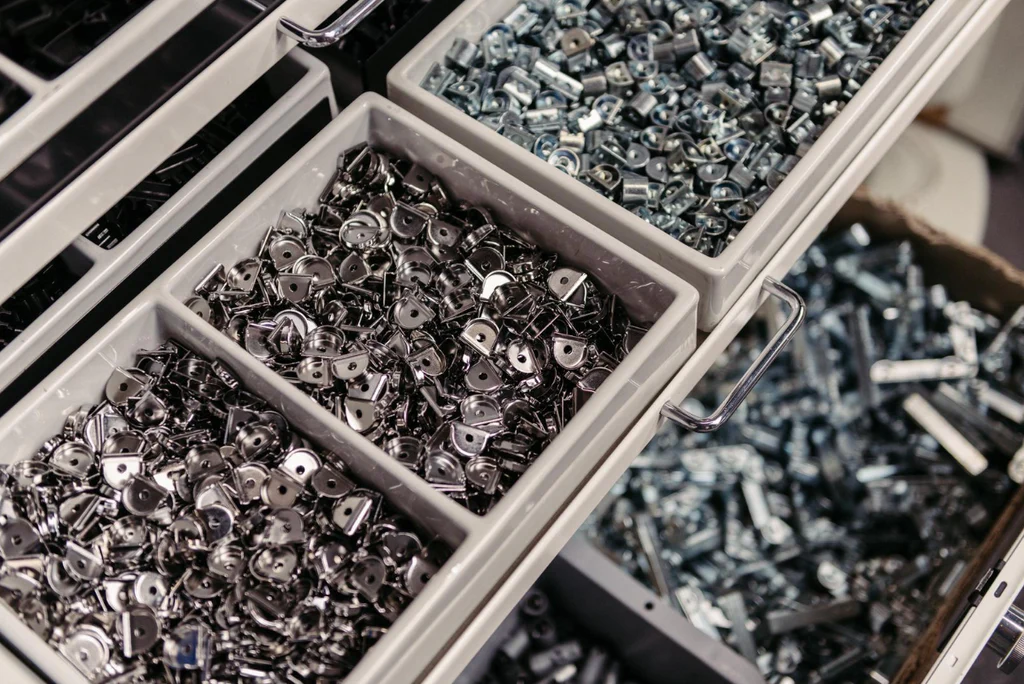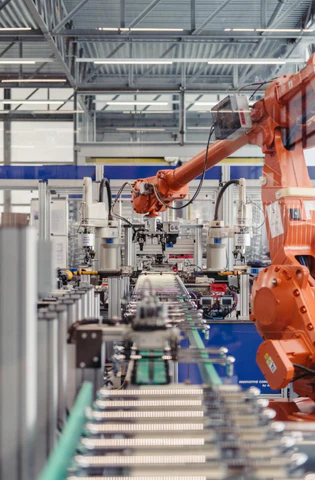Sustainability
Since USM’s very beginning, sustainable development has been a keystone of business.
As a furniture business, that means two things. Firstly, hold selves to the very highest standards when it comes to the materials and production methods use and the energy and emissions they produce. Secondly, do everything we can to provide customers with furnishings that allow them to live in a sustainable manner.
Build and frequently redevelop our factories and workshops to meet a high standard of environmentalism. The steel at the heart of products is highly recyclable, and manufacturing processes are carefully built around the goals of energy efficiency and almost total recyclability at every stage.
Proud to have been recognised for commitment to reducing emissions. In 2007, became the first European company to be certified by the Greenguard Environmental Institute for the low particle and chemical emissions of products. Low emissions make home and work environments healthier by reducing indoor air pollution.
The more quickly a product has to be replaced, the worse it is for the environment: materials and processes are then required to build a replacement, and the old product has to be recycled or thrown away. Damage to the environment resulting from frequent replacement is avoided by building products that last. That principle is essential to USM’s business philosophy. Build products that endure: wear-resistant materials, fine craftsmanship, durable designs, and timeless style all ensure that USM furniture lasts a lifetime.
That’s why are proud to have been awarded the Cradle to Cradle® certification in 2018 for USM Haller and USM Kitos M ranges.

What is Cradle to Cradle?
Everyone has heard of the ecological “day of overcoming”, when humanity consumes more natural resources and emits more greenhouse gases than Earth is able to produce or absorb in a year. This year, this day was reached on August 1st. To meet the depletion of our planet’s natural resources, German chemist Michael Braungart and American architect William McDonough set the principles of Cradle to Cradle in the early 1980s. There is also talk of a “positive impact circular economy”.
Instead of undermining economic growth and ecology, Cradle to Cradle is an industrial model that mimics the balance of natural ecosystems and starts from the premise that humankind can have a positive and restorative beneficial impact on the environment. Far from the usual anxiety-provoking talk about the future of our planet, Cradle to Cradle offers concrete solutions that can turn our waste of today into tomorrow’s resources.
At the heart of the concept is the development of upcycling products. To avoid wasting and wasting resources, we need to transform end-of-life products to give them value so they can go back to a new production cycle rather than end up in the trash! Thus, we eliminate the concept of waste and there are only resources that can be reused to infinity. This concept is inspired by nature, where the visible waste forms the basis of new organisms. An example is the flowering of trees, whose flowers falling on the ground become new trees or nutrients.

How can Cradle to Cradle certification be obtained?
Since its inception, sustainability has been the cornerstone of USM’s development, which has consistently committed itself to minimizing its energy consumption and production, its emissions, its raw materials and to implementing effective production methods. It was therefore logical for the company to aspire to Cradle to Cradle certification.
The Cradle to Cradle certification is a progressive process that allows to better know the composition of the products and to verify the possible toxicity of the components used. Businesses must be ready to engage in continuous evaluation and optimization of their product. Certification looks at whether the components can be part of a biological or technical recycling, how much importance is given to renewable energies, water management and societal responsibilities throughout the process of manufacturing and assembling the products.
Unlike other eco-labels that focus on just one aspect to evaluate, Cradle to Cradle certification is a holistic approach to evaluating product design and manufacturing conditions. This is why the assessment covers all five criteria: healthy materials, material reuse, renewable energy and carbon management, water management, social responsibility.
Since its launch in 2005, the Cradle to Cradle certification has been awarded to more than 8000 products manufactured by 260 companies in more than 15 different countries and involved in fields as varied as construction, textiles, health, automotive, the furniture.

